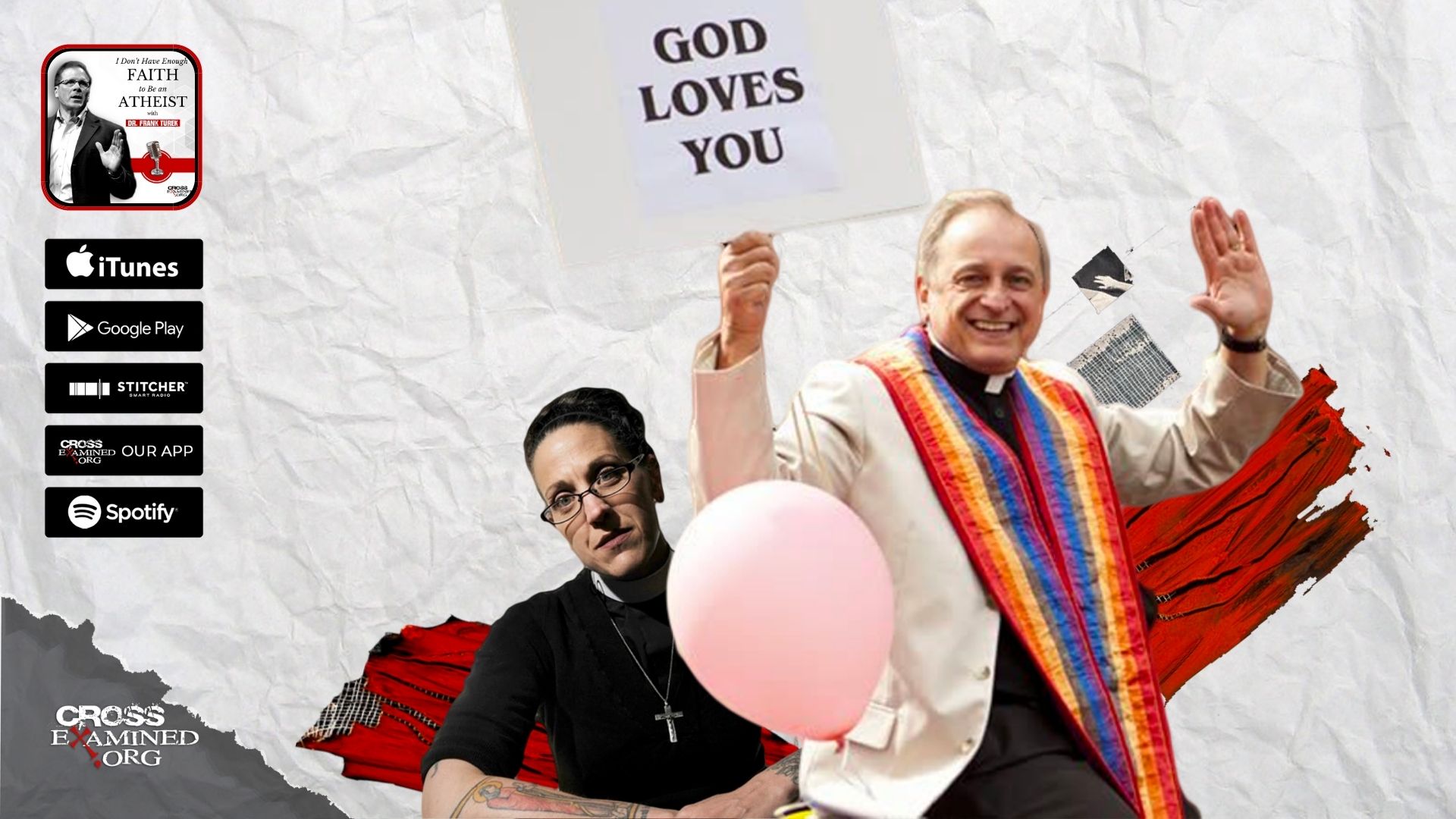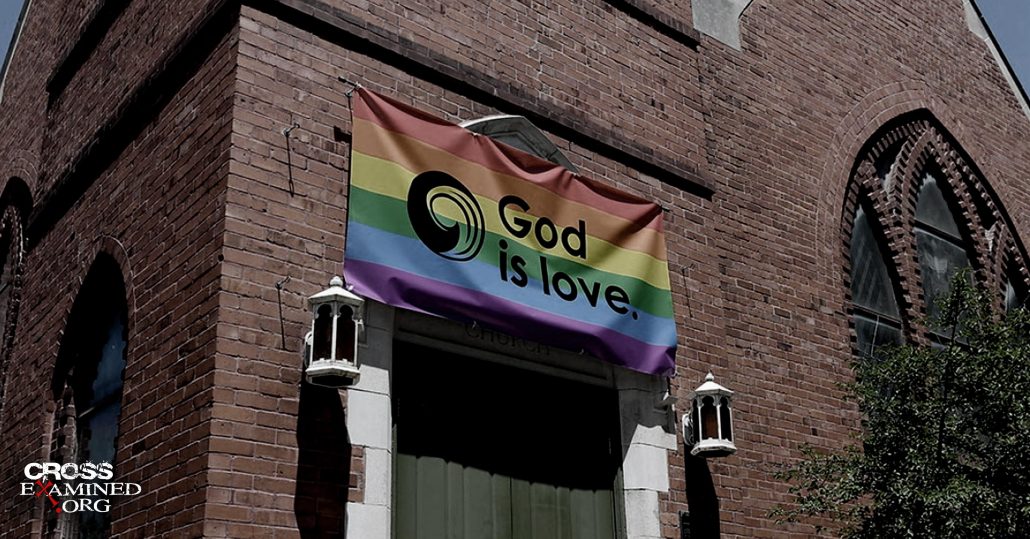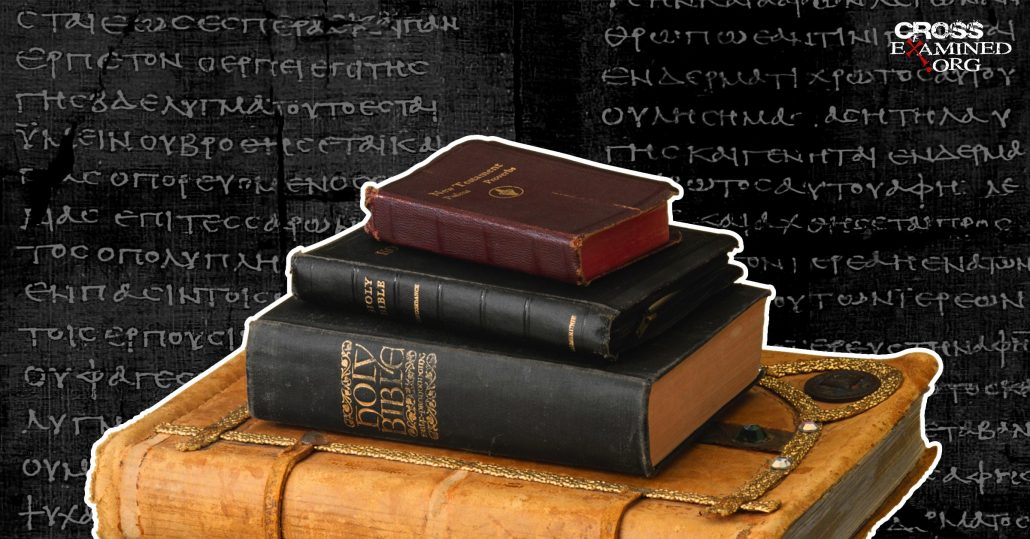Think about the phrase “New Age.” What comes to mind? Old documentaries of hippies at Woodstock experimenting with LSD and yoga? Shirley MacLaine holding a cluster of crystals on the cover of Time Magazine back in the ‘80s? Deepak Chopra teaching Oprah how to move things with her mind in the ‘90s? As old or out of touch as these images may seem, New Age beliefs are hotter than ever and have permeated our culture—but with a slick new image. The psychic hotline of the ‘80s has been replaced by winsome hipster gurus who have traded robes for skinny jeans—often translating Eastern religious ideas into Christianese.
Many Christians aren’t even aware of how New Age beliefs have infiltrated Christendom through the Progressive Church. I’ve written about Progressive Christianity here, and talked about it here, here, and here. It wasn’t until I recently did a study of New Age Spirituality that I realized how much Progressive Christianity has in common with it.
Here are 5 ways Progressive Christianity and the New Age Spirituality are kind of the same thing:
1. The redefinition or abandonment of the concept of sin
New Agers believe all people are inherently divine….that there is no such thing called “sin,” but only the failure to remember our divinity. In her master class on the Oprah and Friends network in 2008, New Age leader Marianne Williamson led countless Americans through the book, A Course in Miracles. Participants were encouraged to affirm “There is no sin,”[1] and were taught, “The Atonement is the final lesson [a person] need learn, for it teaches him that, never having sinned, he has no need of salvation.”[2] And all of this information supposedly came from Jesus Himself.[3]
Several years ago I heard a Progressive pastor teach on Genesis 3, the famous passage in which Eve was tricked by the serpent into eating the forbidden fruit. Rather than reading the account as historical fact, he was unpacking the moral “truth” we could all learn from this creation story. He made the point that when this first couple took that fateful bite, it was their shame, not their sin, that separated them from God. In other words, they failed to recognize their belovedness…their inherent goodness and worth. If they were “separated” from God, it was they who were distant….not God. Progressive writer Brian McLaren describes it this way: “They lose their fearlessness in relation to God.”[4]
Notice the similarity of language. Without original sin we are all good, and we are only distant from God in our own minds when we forget that.
2. The denial of absolute truth
New Age thought is marked by its relativism: a rejection of objective morality and absolute truth. If something feels true to you, it’s true. If it feels right to you, it’s right. If something feels real to you, it’s reality. In other words, your own thoughts and feelings are your authority for what is true and real.
One distinctive feature of Progressive Christianity is its denial of biblical authority. But of course, no one operates without an authority—if you remove one authority, you will replace it with another. Typically, Progressive Christians shift the authority for what they believe is true from the Bible to themselves—by becoming their own moral compass which will inevitably ebb and flow with culture.
3. An acceptance of Jesus, but a denial of His blood atonement
New Age thought leaders almost always couch their teachings in Christian language. Jesus is an example of someone who attained enlightenment by connecting with the divine—an example any of us can follow. His death wasn’t a saving act…the “saving” comes from within ourselves when we realize we have the same capabilities as Jesus already within us. This is often referred to as “Christ consciousness.” This is why many New Agers see no contradiction in reciting the Lord’s prayer while believing in karma and the healing power of crystals. Of course, this is an outright denial of His atoning death and resurrection.
Many (not all) Progressive Christians also deny the blood atonement of Jesus. Last year, popular Christian musician Michael Gungor took to Twitter to rant about the idea of God requiring a blood sacrifice for sin, calling it “horrific.” In his controversial book, Love Wins, Rob Bell refers to this idea as something Christians simply picked up from surrounding cultures and used to explain the death of Jesus. In a 2016 lecture explaining the Eucharist (Communion for us Protestants), Bell joked about the ridiculousness of atonement theory, summing it up as: “God is less grumpy because of Jesus.” This gave the audience a good laugh, as Bell went on to explain that the real reason we pass the bread and wine is to “heighten our senses to our bonds with our brothers and sisters in our shared humanity.”
Many Progressive Christian leaders have popularized the phrase “cosmic child abuse,” a term first coined by Steve Chalke to protest the idea that a loving God would require a blood sacrifice for the sin of mankind.
4. It’s all about “me”
New Age thought revolves around the “Self.” Self-empowerment and realization of our innate divinity are central to its teachings and practices. According to New Age blogger Kalee Brown, when Jesus said, “I am the Way, the Truth, and the Life” in John 14:6, “The ‘me’ Jesus referred to isn’t himself, but rather the Self within you” (emphasis mine). A Course in Miracles also asks the participant to affirm: “My salvation comes from me.”[5] And hey….if we are all divine, why shouldn’t it be about us?
The typical Progressive Christian will probably not agree that it’s all about them—in fact, they tend to be very focused on social justice. But that’s not what I’m talking about here. I’m talking about a theological shift. Progressive favorite Richard Rohr even goes so far as to write that each of us and sometimes “creation” is the “fourth member of the blessed Trinity,” implying that the fullness of God isn’t complete until we become a part of it.[6]
Generally speaking, the concept of sin is abandoned or redefined, truth becomes relativized, and a mere martyr’s cross gives us a more palatable Jesus who is a great teacher, moral example, and doting BFF—but not the all-powerful warrior King who will one day return in a blood-dipped robe to judge the living and the dead. (Revelation 19:13; 2 Timothy 4:1)
5. Universalism
Former New Ager and now Christian believer Steven Bancarz noted that New Age proponents affirm the idea that all roads lead to God. He wrote:
The New Age movement holds tightly to religious pluralism and universalism, which is the view that all religions are inspired by a common Source and they all point to the same truth that we will one day reach, regardless of what path we choose to get there.
Many Progressive Christian authors affirm some form of universalism—implicitly, by denying the concept of a literal hell, or explicitly, by declaring that all people will be reconciled to God, regardless of their beliefs or religious practices.
The concept of universal reconciliation (that Jesus will reconcile all sinners to Himself,) was smuggled into the mainstream consciousness of the Evangelical church through the wildly popular 2007 book, The Shack. Years later, its author, William Paul Young, confirmed his intention in his book, Lies We Believe About God. He wrote, “Are you suggesting that everyone is saved? That you believe in universal salvation? That is exactly what I am saying!”[7]
None of this is new. Throughout church history these ideas have emerged again and again. They are old pagan dogmas recycled as new and edgy ideas, dressed up in modern garb and given a Christian make-over. Trevin Wax put it perfectly on Twitter:
One of the insufferable aspects of heretics and heresies is how boring, predictable, and recycled they are. Orthodoxy is thrilling in its holding together of paradox and mystery. Heresies are narrow because they’re tailored to their times.
Progressive Christians may think they are being cutting-edge and relevant by stepping outside the bounds of orthodoxy, but in reality, they are simply falling for the ideology that has kick-started every false religion since the fall of man: “They exchanged the truth about God for a lie, and worshiped and served the creature rather than the Creator” (Romans 1:25).
It is no less damning if the “creature” is….yourself.
References:
[1] Schucman, Dr. Helen (2007-12-25). A Course in Miracles Foundation for Inner Peace. Kindle Edition. Lesson #259
[2] Ibid., Kindle Locations 21635-21636
[3] A Course in Miracles is a collection of spiritual revelations recorded by Columbia University Professor Helen Schucman. She dictated messages from an entity she called “the Voice,” that she later identified as “Jesus Christ.”
[4] McLaren, Brian (2011-2-1) A New Kind of Christianity, Harper One; Reprint edition p. 50
[5] Schucman, Dr. Helen (2007-12-25). A Course in Miracles Foundation for Inner Peace. Kindle Edition. Lesson 70
[6] Rohr, Richard. The Divine Dance: The Trinity and Your Transformation (Kindle Location 1255). Whitaker House. Kindle Edition.
[7] Young, William Paul (2017) Lies We Believe About God, Atria Books p. 118
Recommended resources related to the topic:
How to Interpret Your Bible by Dr. Frank Turek DVD Complete Series, INSTRUCTOR Study Guide, and STUDENT Study Guide
Jesus, You and the Essentials of Christianity – Episode 14 Video DOWNLOAD by Frank Turek (DVD)
Can We Understand the Bible? by Thomas Howe Mp3 and CD don’t promote
How Philosophy Can Help Your Theology by Richard Howe (MP3 Set), (mp4 Download Set), and (DVD Set)
__________________________________________________________________________________________________________________________________________________
Alisa Childers is an American singer and songwriter, best known for being in the all-female Christian music group ZOEgirl. She has had a string of top ten radio singles, four studio releases, and received the Dove Award during her time with ZOEgirl. In later years, Alisa found her life-long faith deeply challenged when she started attending what would later identify as a Progressive Christian church. This challenge pushed Alisa toward Christian Apologetics. Today you can read, listen and watch Alisa’s work online as well as purchase her recently published a book on Progressive Christianity titled Another Gospel.
Original Blog Source: https://cutt.ly/Dzx86iC








